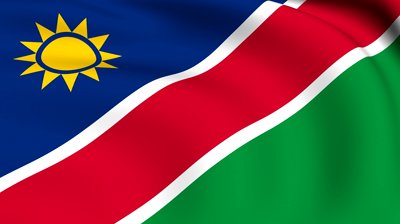South Africa occupied the German colony of South-West Africa during World War I and administered it as a mandate until after World War II, when it annexed the territory. In 1966, the Marxist South-West Africa People's Organization (SWAPO) guerrilla group launched a war of independence for the area that became Namibia, but it was not until 1988 that South Africa agreed to end its administration in accordance with a UN peace plan for the entire region. Namibia has been governed by SWAPO since the country won independence in 1990, though the party has dropped much of its Marxist ideology. Prime Minister Hage GEINGOB was elected president in November 2014 in a landslide victory, replacing Hifikepunye POHAMBA who stepped down after serving two terms. SWAPO retained its parliamentary super majority in the November 2014 elections and established a system of gender parity in parliamentary positions.
Namibia is a presidential republic.
Source: CIA World Factbook
Members:
Resources
Displaying 11 - 14 of 14Communal Land Reform Amendment Act, 2005 (Act No. 11 of 2005).
This Act amends the Communal Land Reform Act so as to: insert a definition of “local authority area”; to substitute the definitions of “Minister” and “Permanent Secretary”; and to modify a reference to specified land in Schedule 1. A “local authority area” means: (a) an area declared or deemed to have been declared under section 3 of the Local Authorities Act, 1992, to be a municipality, town or village; (b) an area declared under section 31 of the Regional Councils Act, 1992, to be a settlement.
Amends: Communal Land Reform Act, 2002 (Act No. 5 of 2002). (2002-07-25)
Communal Land Reform Amendment Act, 2013 (No. 13 of 2013).
This Act amends the Communal Land Reform Act so as to: insert a definition of 'community based organisation', 'lawful resident' and 'occupational land righ'; to place restrictions on the acquisition by foreigners of customary land right or right to leasehold; the power to grant occupational land in respect of communal land rights by a board; conditions applying to such grant; and recognition of existing rights to occupy communal land as occupational land rights.
Amends: Communal Land Reform Act, 2002 (Act No. 5 of 2002). (2002-07-25)
Town and Regional Planners Amendment Act, 1998 (No. 32 of 1998).
This Act amends the Town and Regional Planners Act, 1996, in section 3 so as to provide with respect to the appointment of the members of the Namibian Council for Town and Regional Planners, i.e. town and regional planners nominated by associations of town and regional planners and town and regional planners in training recognised as a town and regional planners' institute under section 9 and appointed by the Minister.
Amends: Town and Regional Planners Act, 1996 (No. 9 of 1996). (1996-07-01)
Town and Regional Planners Act, 1996 (No. 9 of 1996).
This Act establishes the Namibian Council for Town and Regional Planners, defines functions and powers of the Council and provides for the registration of town and regional planners and the supervision over their conduct. The Minister may, on recommendation of the Council prescribe the kinds of work of a town and regional planning nature which shall be reserved for town and regional planners. The Act also defines improper conduct and defines disciplinary powers of the Council.
Amended by: Town and Regional Planners Amendment Act, 1998 (No. 32 of 1998). (1998-10-30)


